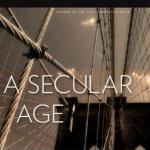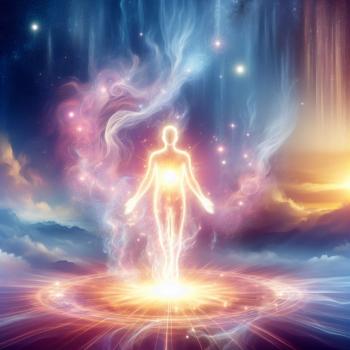As the terror of COVID-19 wanes in the West it seems appropriate to do two things. First, to carefully reflect on the response of government to the pandemic. Second, to assess our cultural attitude toward death and dying. With regard to the former, there will be great controversy. This will especially be the case as the corruption and incompetence that informed key decisions comes to light.
With regard to the latter, there may be less controversy, at least in the political sense. However, theologically speaking, there is also a level of corruption and incompetence that has misinformed our cultural and which should also be seriously reevaluated. That misinformation has to do with our approach to death and dying, issues of particular interest to the theologian and the Church he serves. Of course, the political and the theological are not unrelated. Our cultural response to death ultimately drives much of our political response to things like pandemics. Better said, politics plays off of our cultural sensibilities.
Therefore, the Church’s attitude about death must be especially scrutinized. How churches handled the effects of the pandemic and the demands of local officials tells us something about how the Church has been influenced by the cultural mood. That the Church, the living embodiment of God’s people on earth, is influenced by the culture in which it exists is not the issue here. There is always an “acculturation” of the Church to its surroundings. However, that cultural attitudes often conflict with biblical claims about reality is an obvious truth as well. And so we must be ever diligent to discern between a cultural attitude and a biblical claim, and to see if they are compatible or not. For if we fail to see death in light of the Gospel, and accept only our culture’s attitude toward it, we may open ourselves up to very great evils indeed.
Die Another Day: Friedrich Dürrenmatt On Doing Evil to Avoid Death
Although little known in the English-speaking world, the Swiss dramatist Friedrich Dürrenmatt was one of the most popular German language authors of the post-WWII era. Born in the Canton of Bern in 1921, Dürrenmatt was the son of a Protestant minister fluent in the biblical languages and in Latin (see Heinreich Goertz, Dürrenmatt, 13). Classically educated, Dürrenmatt went on to become one of the most prolific playwrights of his day. However, it was his series of detective novels that earned him global status. The final book of that series, Das Versprechen (The Pledge), was eventually made into a Hollywood film starring Jack Nicholson.
In the second of this 3-part detective series, Der Verdacht (The Suspicion), we meet Commissar Bärlach, the hero of this story and of the previous one. Bärlach is an aging, veteran detective who, at the start of the novel, has just survived a critical operation. He has a terminal cancer and only a short time to live. However, due to an uncanny series of events, he comes to discover that nearby in the pristine Swiss Alps, there is luxury clinic being run by a former Nazi concentration camp surgeon. The surgeon calls himself “Emmenberger,” a play off the famous Swiss valley of “Emmental,” but whose name during the war was “Nehle.” (Dürrenmatt often indicts his home country of Switzerland for its failures during the war, feeling that no country should have remained ‘neutral’ in such times).
Nehle’s modus operandi (literally) is performing surgery on patients without narcotics (i.e., without anesthesia). The reader quickly discovers the raison d’être of the former Stutthof torture: he operates on his victims for the dual purpose of experiencing their pain and for the feeling of having power over life and death itself. Nehle’s joy is a pure sadism: he lives to see others as mere objects of his use and abuse, and to experience total control over the life of another.
However, unlike other stories of narcissism, Dürrenmatt introduces an even more diabolic twist to the narrative of the conscience-less sadist. It is a twist that will help illuminate our current crisis about death and dying. Nehle, under his alias “Emmenberger,” no longer executes his macbre form of torture on unwilling, yet helpless, Jewish prisoners. Instead, having escaped war-time justice, he runs a health spa for the ultra-rich. It is here that bankers, politicians, industrialists and their mistresses come and allow themselves to be operated on, without anesthesia, by the famous clinician. These moguls of industry and culture pay exuberant amounts of money to be tortured and, in doing so, Emmenberger continues the same evil work he began during the war. In fact, he is praised for his abilities, and the super wealthy who come visit him treat him like a god (Goertz, Dürrenmatt, 36).
Why such madness?
But why would they do such a thing, pay to be tortured like this? Emmenberger has honed his surgical skills in such a way as to extend the life of his patients. He cannot extend it indefinitely (this is not a sci-fi genre), but the rich and powerful are willing to undergo all manner of debasement if only to live just one more month, one more day, or but a few more hours. Here is the ultimate deal with the devil. It is the truly grotesque, as man allows evil to be done to him out of an absolute sense of fear. The fear of aging and dying drives these wealthy patrons into the hands of a person who thoroughly hates them, or, who, at least sees them as no more valuable than an inanimate object (even if more useful).
Committed to justice, even at the risk of his already fragile life, the noble Bärlach provides the counterpoint to both Nehle’s cruelty and his patients’ fear. In spite of his weak condition, he refuses to give up seeking out evil and bringing it before judge and jury. He voluntarily checks himself into Emmenberger’s Davos-like clinic, hoping to find some way to bring this criminal to trial. However, before the aging knight can come up with a plan to seize his foe, he is found out by the sadistic doctor. Helpless and exposed, Nehle now plans to operate on the heroic Bärlach later that evening, without anesthesia, until he dies. The one seeking justice will be sacrificed on a bed of torture, flayed alive like the Christian martyr. To add to his anguish, Nehle places a clock on the wall across from Bärlach (after having him restrained), so he can see the seconds tick down to the moment of his destruction.
In the end, Bärlach only narrowly escapes the clutches of the evil doctor, being rescued in deus ex machina fashion by a former prisoner of Nehle’s, a giant Jew who goes by the name “Gulliver.” Nehle, or Emmenberger, the perfect nihilist, cannot be brought to justice in any humanistic sense of the word. For the nihilist there is no such thing as justice. Justice is purely a convention, an invention of prudish and weak humanity. Sadists like Nehle cannot be brought to justice, they must simply be eliminated. Dürrenmatt has the battle-worn Gulliver break into the clinic minutes before Barlach’s scheduled “operation,” and execute his former torturer “according to the law of Moses.” So much for retributive justice (Genesis 9:6; Exodus 21:12).
The Creed of the Nihilist
In the shadow of the war, Friedrich Dürrenmatt, like his contemporaries Berthold Brecht, Wolfgang Borchert and Heinrich Böll, struggled to understand the horror of Nazi Germany they had just witnessed. The need to understand death and cruelty pervade these artists’ thought and writings. Very few of them ever found solace in traditional religious explanations for such evil, even if Dürrenmatt seemed to try. Nevertheless, the value of their work and their experiences is indispensable to Americans who have never seen such mass devastation in their homeland.
In the figure of Nehle/Emmenberger, Dürrenmatt presents us with the kind of nihilist that bothered even Nietzsche. Nehle is not the homeric artist, who in virtue of his own will to power creates in abundance for the strong and the weak alike to enjoy. Rather, he is the great annihilator, who in virtue of his desire and willingness to transgress all boundaries, dares to destroy–and destroy programmatically. In the words of Alfred in The Dark Knight , Nehle, like the Joker, is the kind of man who simply “wants to see the world burn.”
In the final discussion with Bärlach, moments before Nehle’s own death, he expresses his nihilistic creed,
I believe that I am. I am a piece of this world of matter, of atom, energy, mass, molecule, just like you [Bärlach], and I believe that my existence gives me the right to do what I wish. As a piece of matter, I exist but for a brief moment and by pure chance, just as life in this vast universe is nothing more than one of its immeasurable possibilities. Life is just as random as I–were the earth a bit closer to the sun, there would be nothing–and in this is the meaning of my life, to exist but for a moment.
Dürrentmatt, Der Verdacht (Zurich: Diogenes, 1986), 109 [translation mine].
Raw existence is enough justification for Nehle to pursue anything that should bring him pleasure or satisfaction or purpose. It is a merely contingent fact that for this particular human organism the activity that gives it the most satisfaction, the greatest sense of purpose, is the torturing of other human beings for fun,
What makes me free?–murder and torture; for if I murder another human being…if I set myself outside of every human convention, conventions constructed in our weakness, then I am free, even if only for a moment, but what a moment it is!
Dürrenmatt, 110. [translation mine]
In a purely material universe, is Nehle to blame for finding his satisfaction in these pursuits? Ultimately, who or what is there to judge him as right or wrong?
In the end, Dürrenmatt does not have Nehle’s crimes adjudicated before a human court. He has Gulliver, an archetypal figure of retribution, simply end his existence. If there is justice done, it must be of a cosmic and mysterious sort, and it must be bloody. All the while Bärlach, like Christ, remains silent before his tormentor, unwilling to participate in his inquisitor’s game of rationalization. There are no words to compel the purely evil will; only raw power can subdue it. Batman cannot reason with the Joker, nor win him over with mercy and compassion. The Joker’s own demise is for himself a joke.
But, why bring all of this up? What does this artistic portrayal of nihilism have to do with the Church in a time of pandemic? As I alluded to, I think the answer lies in our willingness to hand ourselves over to that which is immoral, cruel even, in light of what we fear. And, if the Church’s attitude toward something like death becomes identical to that of the culture, then the likelihood of a doorway to cruelty opening up becomes all the greater.
The Church and COVID-19: Were We Too Afraid to Die?
That there will be some natural fear of death is unavoidable. After all, most of our experiences are embodied ones. Well, probably all of them (except for those who have had legitimate near death experiences). In his novel, Dürrenmatt points out a terrifying dynamic. It is a dynamic we have seen play out in human history. On the one hand there is the nihilist, the sadistic sociopath, who is willing to flout all laws, human or divine, for the sake of satisfying his morbid curiosities and grotesque desires.
But, on the other side of that relation, is the subservient person, the masochist. The one who, for their own reasons, is willing to offer themself up to the sociopathic sadist. These people are also looking for control– not control of other people but of their own circumstances. This longing to control our circumstances, however, can take us beyond the pale of morally appropriate action.
For many in America today it would seem that fear is the great motivator to participate in the games of the powerful. That fear is fear of death and dying. COVID-19 has exposed our willingness to submit, without much critical thought, to the will of the powers that be. While I am not suggesting that measures like lockdowns or masks were entirely inappropriate, there is nevertheless a cautionary tale to be told about our readiness to accept such measures in the name of health or safety.
The person of good will desires to give the benefit of the doubt to those in power. However, those more astute to human nature will also recognize that the desire to have power over others is always present in society. So-called “experts” may very well be masters in their particular field of science or technology. But that expertise, like Nehle’s expertise as a surgeon, says nothing of their moral character. In fact, one should suspect that those who are most narcissistic, and perhaps most nihilistic, will often be those who exercise an inordinate amount of influence in culture. This is something that economist Friedrich Hayek pointed out, also in the wake of World War II. Especially intelligent, and immoral, people are often the ones who have maneuvered themselves into positions of great authority and impact.
The Church must, therefore, be the prophetic voice that checks and balances this drive for power. This must happen both in the microscopic arena of the family, as well as the macroscopic arena of the nation. However, if the Church itself no longer lives in the hope of the goods promised us after physical death, but instead cowers before death, then it will be quite hard for the natural fears of man to not overwhelm him and his community. Further, if natural fears, like the fear of death, overwhelm a majority of the population, then the balance of liberty will tip in favor of those few who would, and who can, exercise control over the masses–all for their self-serving purposes.
If we are too afraid to die as Christians, then we are not really alive in Christ. The answer to human liberation has always been, and ever will be, a robustly ontological one. We must remind ourselves and our culture that death is not the end, lest we fall prey to evil men.
When this perishable body puts on imperishability, and this mortal body puts on immortality, then the saying that is written will be fulfilled:
“Death has been swallowed up in victory.”
“Where, O death, is your victory?
Where, O death, is your sting?”The sting of death is sin, and the power of sin is the law. 57 But thanks be to God, who gives us the victory through our Lord Jesus Christ.
Romans 5:54-56














